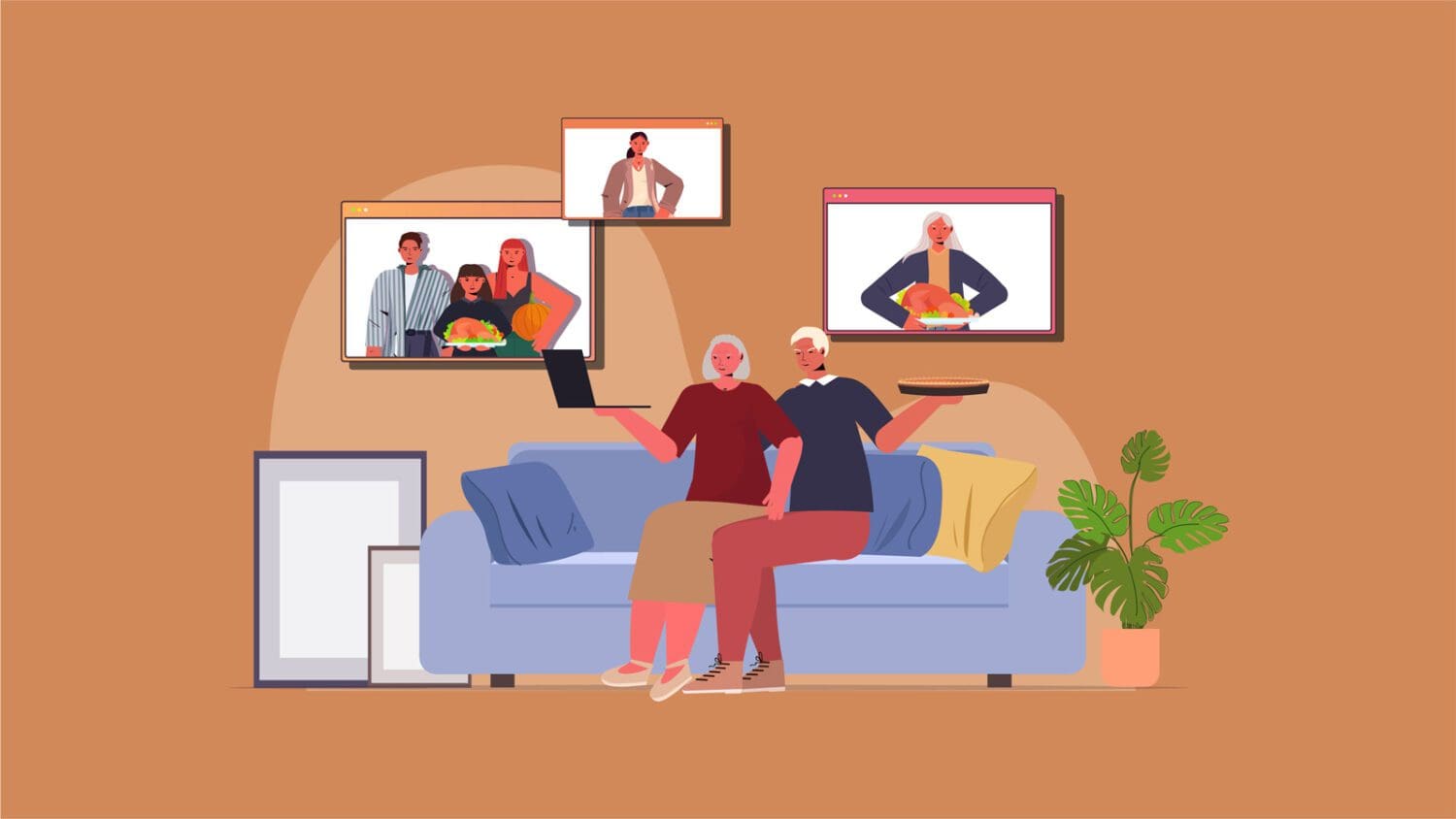Even small gestures like sharing recipes or sending mail can help combat COVID-19-related loneliness and isolation over the holidays, according to experts from the USC Leonard Davis School of Gerontology.
Volunteer Virtually
Research shows that those who volunteer have better mental and physical health outcomes, says Carly Roman, a USC Leonard Davis School doctoral student who studies the gains of giving back. This holiday season, staying put doesn’t mean you can’t still lend a hand. For older adults, even seemingly small gestures, like providing advice or sharing a recipe, can be especially meaningful because they provide an opportunity for them to express generativity, a feeling of contributing to the well-being of others that has been linked to decreased depression, increased psychological well-being, later onset of physical disability, and reduced mortality.
“It’s not just the people receiving support who benefit; researchers have shown that helping others is also important for health and well-being,” said Roman, citing a 2016 study which found that individuals randomly assigned to perform an “act of kindness” for someone else had increased happiness compared to those who performed the “act of kindness” for themselves.
Reach Out
“It’s hard to only be able to see one another by Zoom or Facetime during the holidays, but the discipline gives us and our loved ones the hope of many future in-person visits,” says Elizabeth Zelinski, professor of gerontology and psychology. She reminds us that in addition to smartphone, computer and tablet technologies, we can embrace old fashioned ways of connecting. “Personalized snail mail has become pretty rare, but it can provide a physical reminder of your thoughts that could be treasured and reread many times,” she said. If your handwriting is hard to read, Zelinski suggests writing drafts on a computer and then mailing a printed copy.
Engage the senses
“Not being able to touch doesn’t mean you have to be out of touch,” said Donna Benton, an associate research professor at the USC Leonard Davis School and director of the USC Family Caregiver Support Center.
Benton says that it is critical we keep all our senses as sharp as possible as we get older. Older adults can continue to be active socially through technology, but it’s on their family and friends who are more familiar with that tech to reach out a helping hand.
Here are some stimulating, and low-tech, suggestions for maintaining closeness while we must stay apart, according to Benton.
- Send a scented gift, like flavored herbal tea (lemon, pumpkin spice, chocolate).
- Find or make a touchable card (add feathers, Cotton ball, Pipe cleaners, soft fabric).
- Gift them a soft plush teddy bear or another favorite animal.
The idea is to share something that wakes up the senses and can bring a smile and memory to someone who might be feeling alone and forgotten.
Be Mindful
“Mindfulness and meditation are great assets to people who have to stay at home,” says USC Leonard Davis School Dean Emeritus Edward L. Schneider, professor of gerontology, medicine and biological sciences. In this video, Schneider encourages those isolated at home to try practicing mindfulness and meditation.
“There’s no question there are health benefits for meditation if you do it on a regular basis,” he said. “And the same thing for mindfulness; actually a part of the brain is stimulated when you are doing mindful exercises. For example, just the idea of gratitude will light up an area of your brain on a pet scan.”





